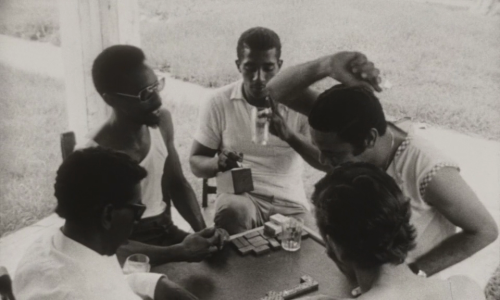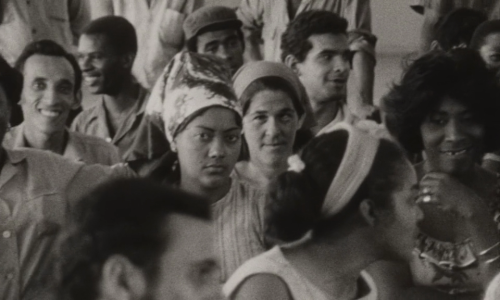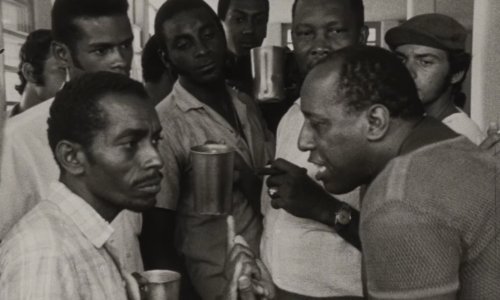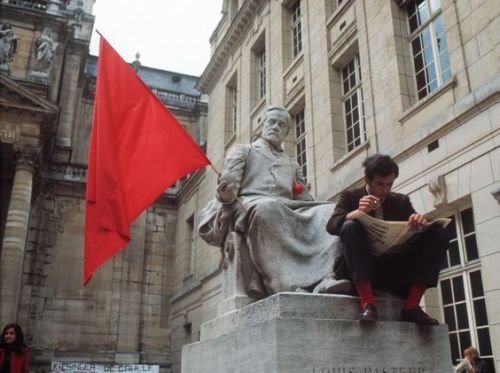itsnotserious:
An article about the Nama and Ovaherero genocide as the culminating point of colonization, the current efforts for recognition and reparations, and possible continuities and solidarities with the Shoah and zionist colonization of palestine.
On 12 January 1904, fighting broke out in the town of Okahandja between German troops and Ovaherero fighters led by Samuel Maharero. More than a hundred soldiers and settlers, mostly farmers and missionaries, were killed in the following days and the Schutztruppe was forced to retreat. Humiliated, Germany started to plan retribution. The Ovaherero were cattle herders whose lands were located in the region’s central plateau. These fertile hills were late to be colonised and had escaped the worst of the Atlantic slave trade because the sand dunes that stretch for hundreds of miles along the coast hid them from the view of European seafarers on their way to the Cape. In the Nama/Damara language, namib means ‘shield’. But once the German protectorate was established, the region became an ideal candidate for what in 1897 the German geographer Friedrich Ratzel termed Lebensraum – the space that was needed to sustain a species or people in their Darwinian struggle for survival. To allow German settlement, Indigenous peoples had to be moved out of the way. At first the land was taken piecemeal by enforced protection contracts and sales agreements, threats, bribes and massacres, but gradually German Africa came into existence as a matrix of farms, missionary outposts, mineral and diamond mines, and military forts like the one in Okahandja. Ratzel believed that South-West Africa was a place where the ‘German race’ could harden its character. He took his inspiration from Frederick Jackson Turner, who argued that American political and cultural identity had largely been formed, half a century earlier, by the experiences of the rugged Western frontier. The African frontier was similarly inhabited by people seen as subhuman, part of the natural environment, who could be exploited, expelled or exterminated at will.
[…]
Nama and Ovaherero survivors were sent to concentration camps, where they were exploited for slave labour to build the colony’s roads, railways, farms and administrative outposts. More than half the prisoners died in their first year of captivity. One camp was on Shark Island, a windy and exposed peninsula near the South Atlantic port of Lüderitz that breaks the endless miles of sand dunes to create a small bay. This was the first anchorage made by Portuguese seafarers in the 15th century. On Shark Island, captives were starved, beaten, raped and executed. Women were forced to boil heads severed from the corpses – which sometimes belonged to their own relatives – and scrape off the flesh with glass so that the skulls could be sent to museums, universities and anthropological collections in Germany. Shark Island is often referred to by descendants of the survivors as the first extermination camp. Up to 80 per cent of the prisoners there died.
By the end of the German campaign, in 1908, more than 65,000 Ovaherero, more than two-thirds of the population, and 10,000 Nama, around half the population, had been killed. Their ancestral lands were not returned to the survivors. Instead, some former officers in the Schutztruppe, including those who had participated in the genocide, were rewarded with farms on their victims’ land. In 1902, less than 1 per cent of South-West Africa was owned by Europeans; after the genocide the figure was more than 20 per cent. The German settlers’ possession of the land was respected when South Africa, a dominion of the British Empire, occupied South-West Africa during the First World War: affinities between European colonial nations trumped wartime animosity. Europeans farmed the fertile areas, while the Indigenous peoples were confined to Bantustans in areas affected by drought. This structure of land ownership remained in place after independence from South Africa and the foundation of Namibia in 1990.
Today, 44 per cent of Namibia’s land area, and 70 per cent of its agricultural land, is owned by 4500 European farmers who make up 0.3 per cent of the population. The Ovaherero and Nama descendants of the genocide victims have founded towns in their ‘ethnic homelands’ that bear the names of their ancestral homesteads, and have kept alive their demands for reparations from Germany and the right of return to their lands.
[…]
Last year, a number of UN special rapporteurs sent a letter to both governments making clear that according to the UN Declaration on the Rights of Indigenous Peoples, signed by Germany and Namibia in 2007, ‘Indigenous peoples have the right to participate in decision-making in matters which would affect their rights, through representatives chosen by themselves.’ The OTA and NTLA position is encapsulated in a slogan: ‘Anything about us, without us, is against us.’ Germany’s acknowledgment of genocide amounted to less than the affected communities had hoped for. Germany understood its admission to be morally rather than legally binding; the events of 1904 to 1908 could be described as genocide, but only if considered from today’s perspective. It was relying on a legal formality, long challenged in cases of genocide and slavery: the ‘intertemporal principle’ holds that a legal question must be assessed on the basis of the laws in effect at the time the act was committed. Germany argued that since the UN Convention on Genocide only came into force in 1948 it couldn’t be applied to the genocide in South-West Africa. A similar argument was presented by Eichmann at his trial in Jerusalem: since Hitler’s orders possessed ‘the force of law’ in the Third Reich, Eichmann was acting according to the laws of the time. The mass killing of civilians in the context of war was already illegal under the terms of The Hague Convention of 1899 when both genocides were perpetrated; but since international law referred to wars between ‘civilised peoples’ this was taken to exclude colonial violence against Indigenous populations. Germany argued that crimes committed in South-West Africa should be assessed not in line with modern legal standards but in accordance with the racist laws of the colonial era. This prompted Sima Luipert of the NTLA to retort that Germany was effectively saying that the Nama and Ovaherero were exterminated as ‘uncivilised savages’.
[…]
Germany’s admission of genocide in the historical rather than the legal sense also meant it denied it had any obligation to pay reparations or facilitate restitution. Accepting legal responsibility would have set a precedent that could be used by other colonial peoples that had experienced genocide at the hands of European states including France and Britain. Germany announced that it would pay €1.1 billion over thirty years in development aid. Before colonisation, the Ovaherero and Nama had been rich in land, cattle and culture. Luipert puts it like this: ‘Development is the greatest Northern lie, the presumed generosity of a civilisation founded on our oppression.’ The affected communities insisted that Germany purchase some of their ancestral lands from the descendants of German settlers and return them. Almost three years after its publication, as a result of objections from Namibian civil society groups and opposition parties, the joint declaration has not been ratified by either the German or the Namibian parliament.
The OTA and the NTLA often make historical connections between the genocide they suffered and the Holocaust. ‘We always felt empathy and affinity with the Jewish people as survivors of a German genocide, and were inspired by their quest for reparation,’ their statement reads. ‘This is not only because we too experienced genocide, but because the Jewish Holocaust is directly linked to what happened at Shark Island and other German-established extermination camps on our lands.’
There are clear continuities between the two German genocides. Many of the key elements of the Nazi system – the systematic extermination of peoples seen as racially inferior, racial laws, the concept of Lebensraum, the transportation of people in cattle trucks for forced labour in concentration camps – had been employed half a century earlier in South-West Africa. Heinrich Göring, the colonial governor of South-West Africa who tried to negotiate with Hendrik Witbooi, was Hermann Göring’s father.
[…]
There are countless monuments across Namibia to German perpetrators of genocide. But a lack of government funding and structural neglect has allowed sites important to the affected communities to fall into ruin. In Swakopmund, local residents have taken it on themselves to maintain a cemetery where genocide victims are buried in face of mainly white residents who use it as a field on which to test all-terrain vehicles. Other historical sites are unknown and unmarked. Namibia’s economy depends on European tourism, and commemorating a European genocide makes visitors uncomfortable. In the tourist camp at the Waterberg National Park, a restaurant serving German dishes – ‘game Schnitzel’ was on the menu when I went – occupies a colonial-era police station. A photograph of the Kaiser looms over the diners. The wine is sent up from a cellar that was used as a prison during the genocide. The only cemetery in the area – well-tended and much visited – contains the remains of the German soldiers killed when attacking the Ovaherero in Waterberg. Few visitors to this breathtaking landscape realise that the cemetery stands on the ruins of the Kambazembi homesteads destroyed in August 1904. This fact, known to oral historians, was confirmed by a single old photograph of the village that we found in the Colonial Photography Archive in Frankfurt. A distinctive rock formation in the mountain range in the background of the picture settled the matter.
[…]
There are ‘worrying similarities between what was played out in South-West Africa and what is being played out today in Gaza’, as Didier Fassin wrote a few weeks after 7 October. In both cases, the mass killing, destruction and displacements followed humiliating military defeats by people they thought to be inferior. The Nama and Ovaherero traditional authorities insist on the recognition of these historical continuities: ‘Our shared experience of settler colonialism and apartheid becomes a platform from which we do not claim for singularity but rather pursue global justice and a quest for solidarity and universal freedom.’ It is important to listen to these voices. Such continuities could bring together the history of the Holocaust with that of colonialism and enslavement, allowing the historical solidarity between Blacks and Jews, and between anti-Zionist Jews and Palestinians, to be recognised.
Israel and Germany’s insistence on the singularity and uniqueness of the Holocaust opens a gap between the histories of antisemitism and racism to such a degree that these two forms of political power fuelled by hatred are pitted against each other. In this context it’s inspiring that the Nama and Ovaherero groups decided to respond to the political atmosphere of censorship and intimidation that greets any expression of support for Palestinians – something they experienced when they visited Berlin in December. ‘It is also with concern that we note attacks against voices from activists from Palestine, the Global South, the Muslim world, as well as dissident Jewish artists and scholars speaking out against [Israeli] policies. We stand with them because we know what it means to speak truth to repressive powers, and what are the consequences of such acts.’
— Eyal Weizman, Diary: Three Genocides







